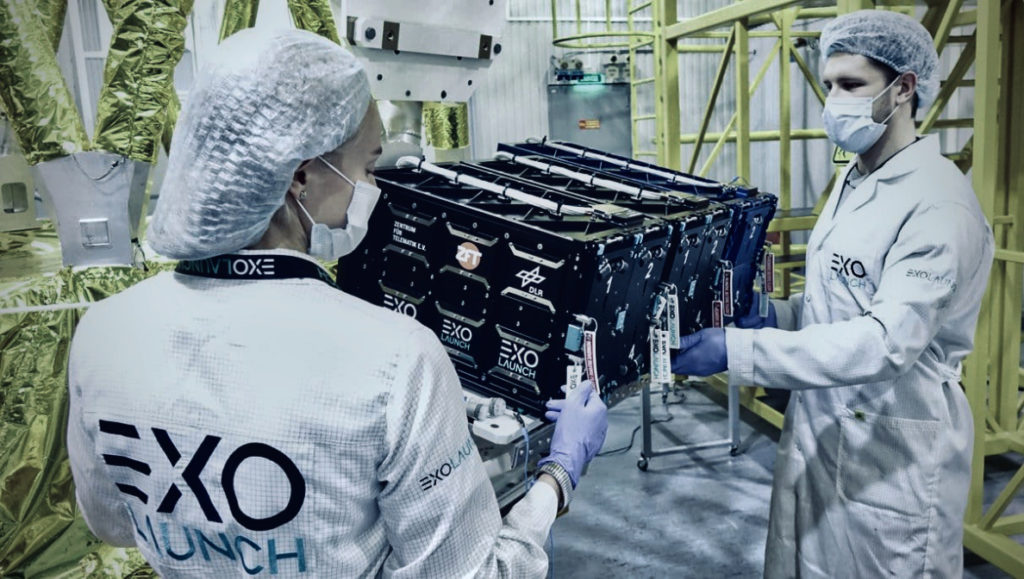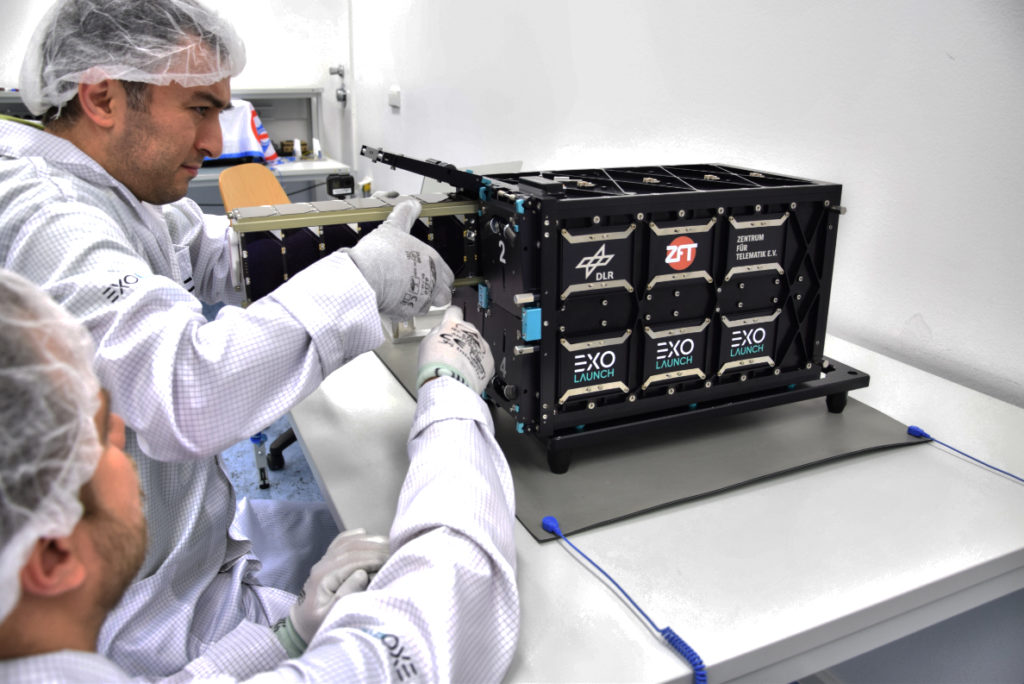
The Würzburg Center for Telematics and Exolaunch now have a launch agreement for a NetSat smallsat formation — under the launch agreement, Exolaunch will coordinate all launcher related activities, including satellite shipment to launch site, integration and deployment services to the Würzburg Center for Telematics’ satellites on a Soyuz-2 rideshare mission scheduled for launch on September 28, 2020.
NetSat is composed of four 3U cubesats that will pioneer research in formation control. The mission will demonstrate the self-organization of several satellites in three-dimensional space to jointly optimize the configuration for given tasks. This will then open up innovative perspectives for future sensor networks in space, including systems for three-dimensional imaging of the Earth’s surface and computer tomography methods for looking inside clouds.
All four satellites will be deployed into orbit with the 12U EXOpod, Exolaunch’s cubesat deployer that has already delivered 80 cubesats into orbit, to date. The satellites have been successfully integrated into the EXOpod at Exolaunch facilities in Berlin, Germany, and made their way to the launch site for integration with the Fregat upper stage.

The NetSat constellation is a part of a September Soyuz rideshare mission – Exolaunch’s seventh mission with Soyuz-2 that is fully manifested by the company. This mission is set to launch numerous commercial payloads carrying cutting edge technologies from Exolaunch’s international small satellite customers. Named Wanderlust, Desire To Travel, this rideshare symbolizes both the ever-increasing importance of sustainable access to space for smallsats and the longing for travel that is currently restricted.
On the Wanderlust mission, Exolaunch is providing its market-leading separation systems – EXOpod for cubesats and CarboNIX for microsats – as well as its EXObox sequencers, to ensure timely deployment of small satellites into their target orbit. The company has excellent heritage flying international customers on Soyuz, having launched more than 85 smallsats on Soyuz missions to date. On this mission, Exolaunch will deploy a cluster of 15 smallsats into a sun-synchronous orbit for its customers from Europe, the UAE, Canada, and the USA.
Executive Comments

“In 2005, a team from Würzburg successfully launched and operated the first German picosatellite in orbit. It continuously placed innovative technology demonstration and application missions. Based on that experience, we appreciated the smooth and good cooperation with Exolaunch, despite all complications of the exceptional COVID-19-period,” said Klaus Schilling, President of the Center for Telematics.

Dmitriy Bogdanov, CEO at Exolaunch, commented further on the upcoming launch plans and said, “It’s great to see such innovations coming from the German aerospace industry. Given the clear trend within the smallsat industry of heading towards larger constellations, this is an important milestone for increasing the capabilities of satellite formations. Exolaunch is proud to work with the Würzburg Center for Telematics team and we look forward to assisting them in growing their satellite network in the future.”
